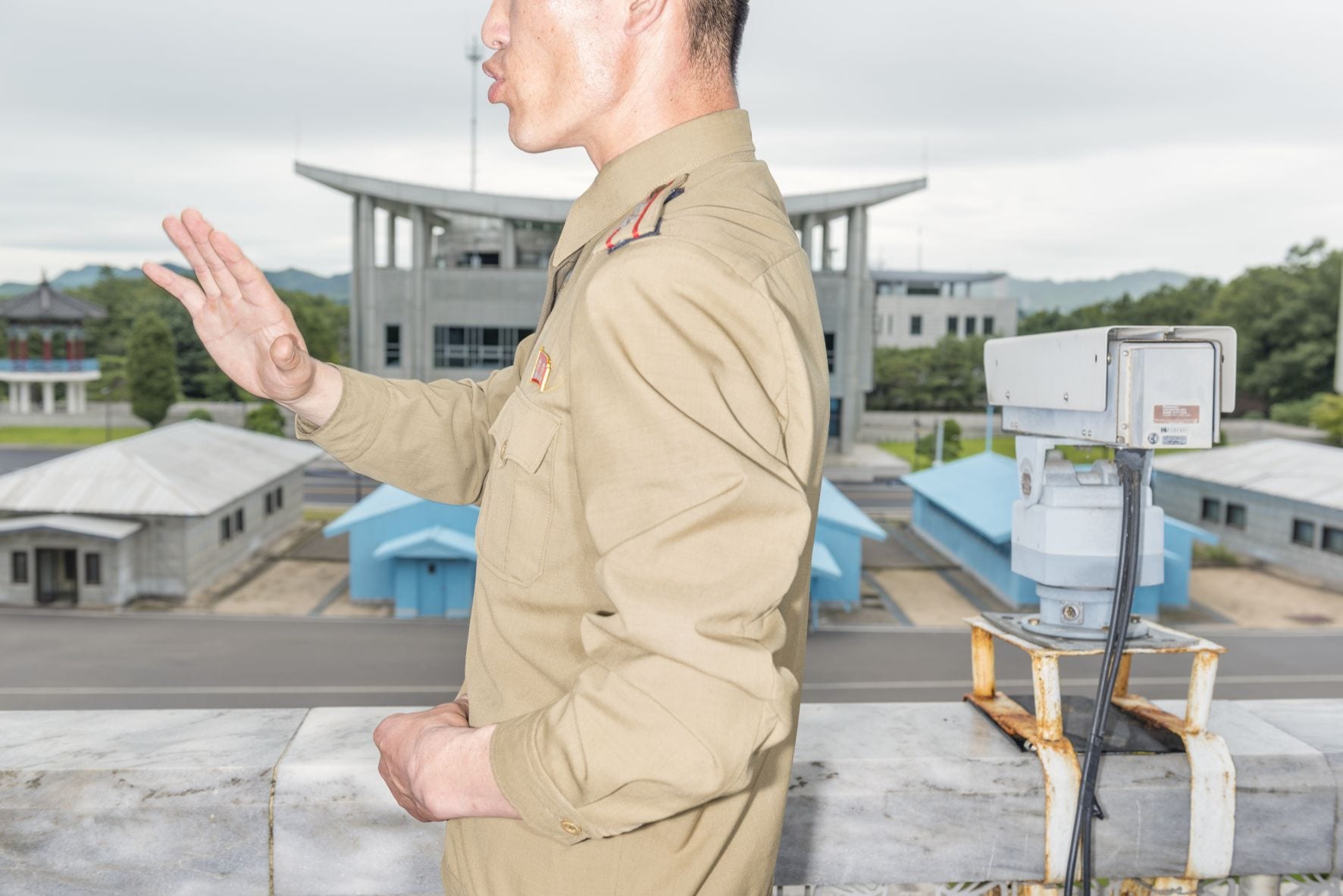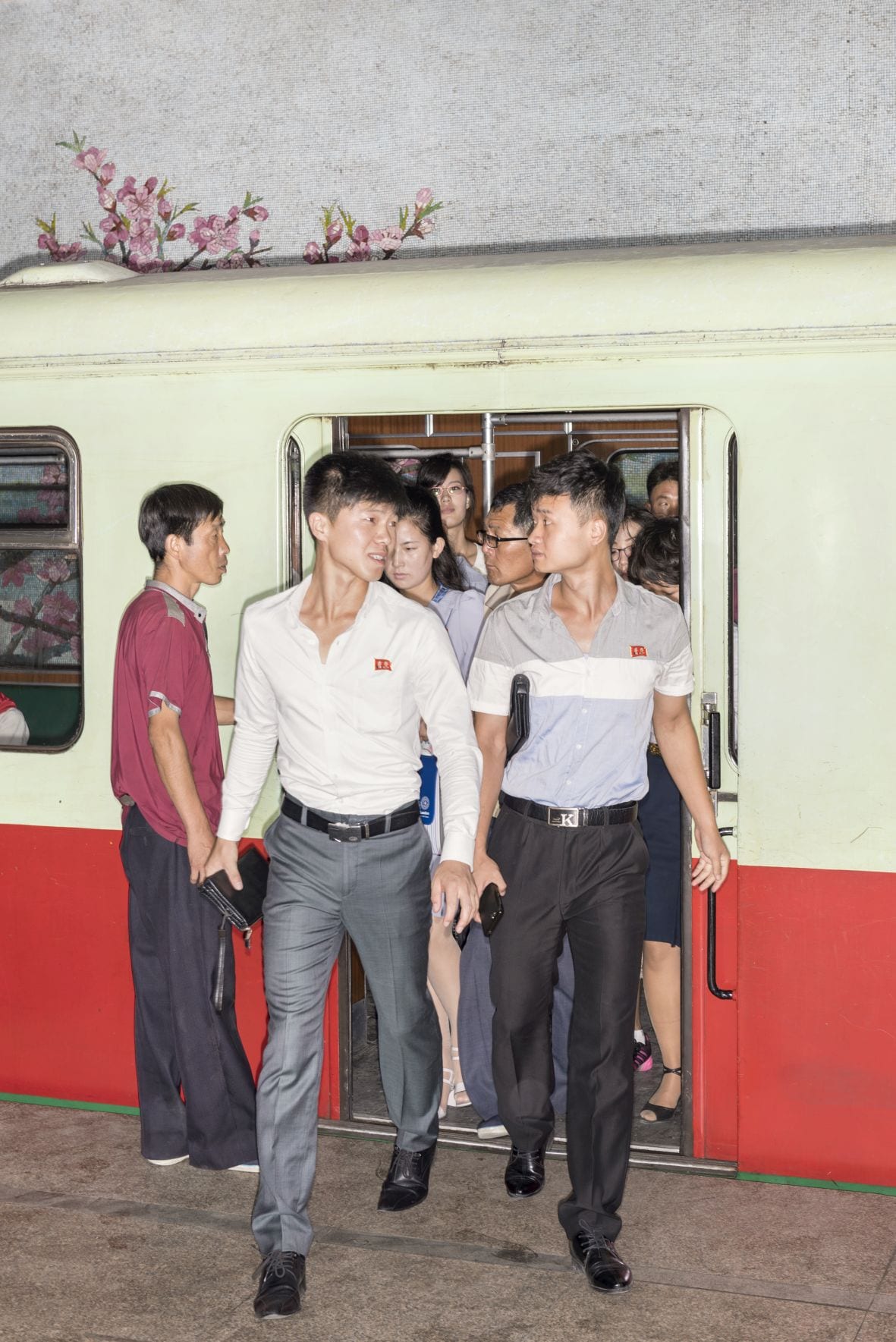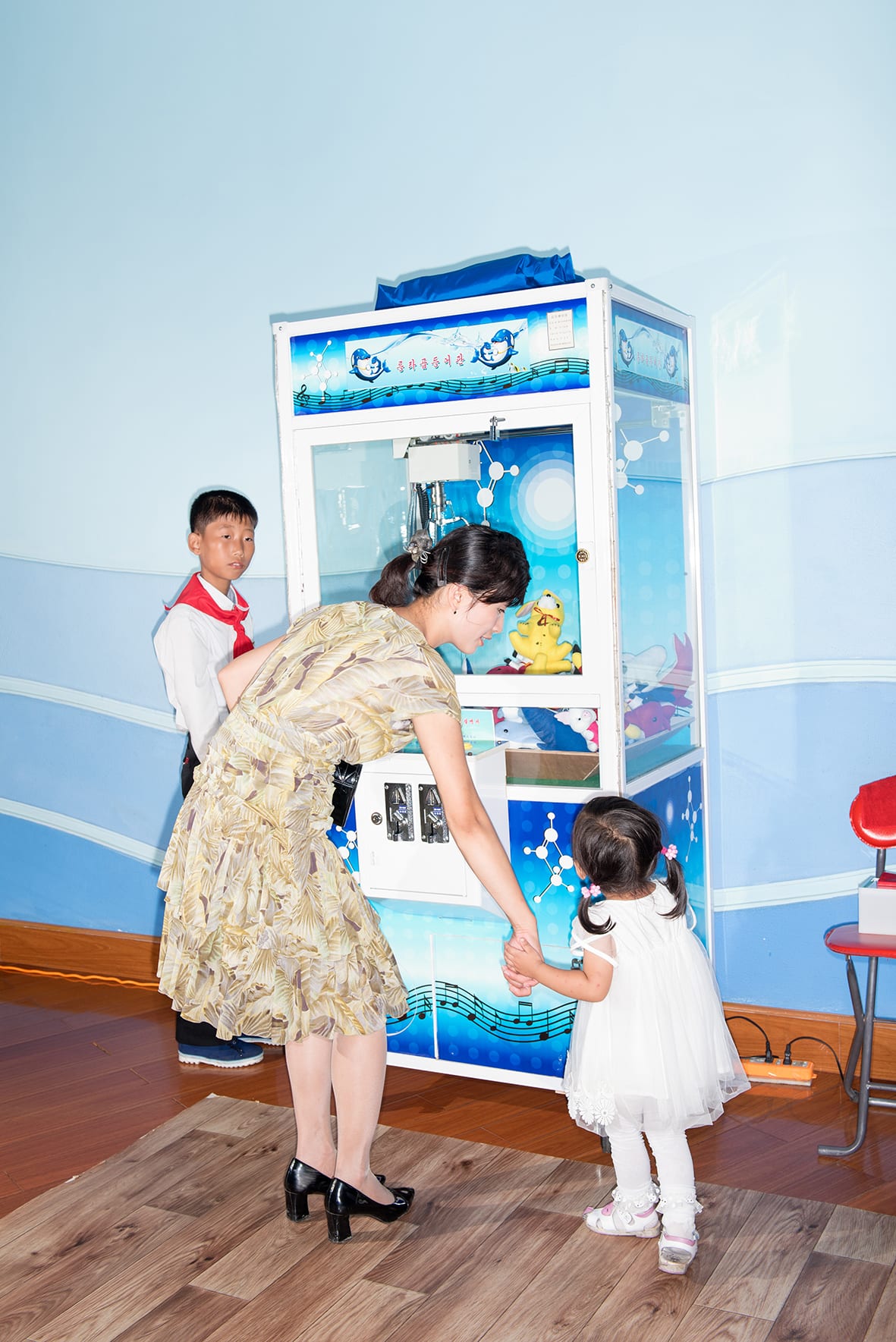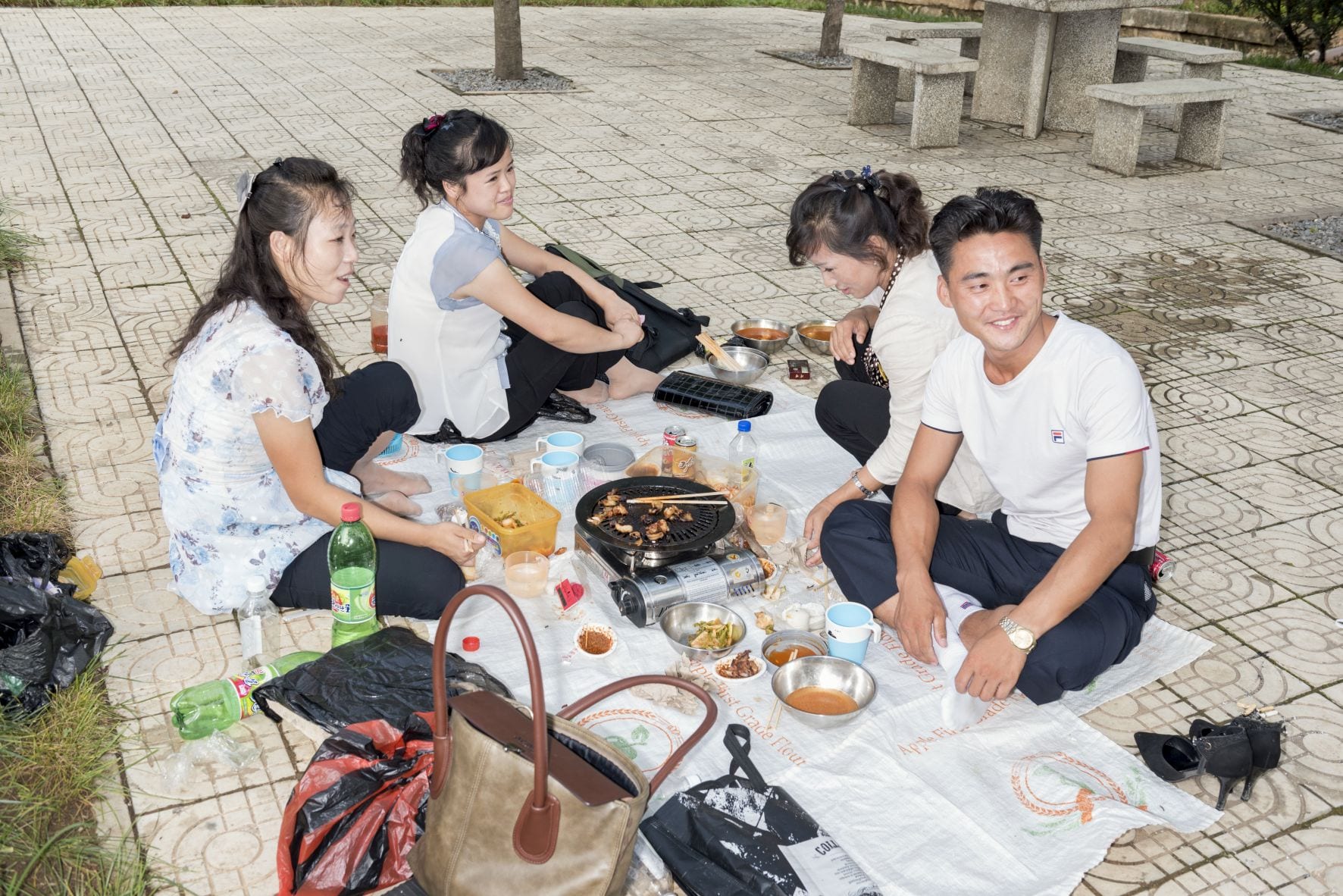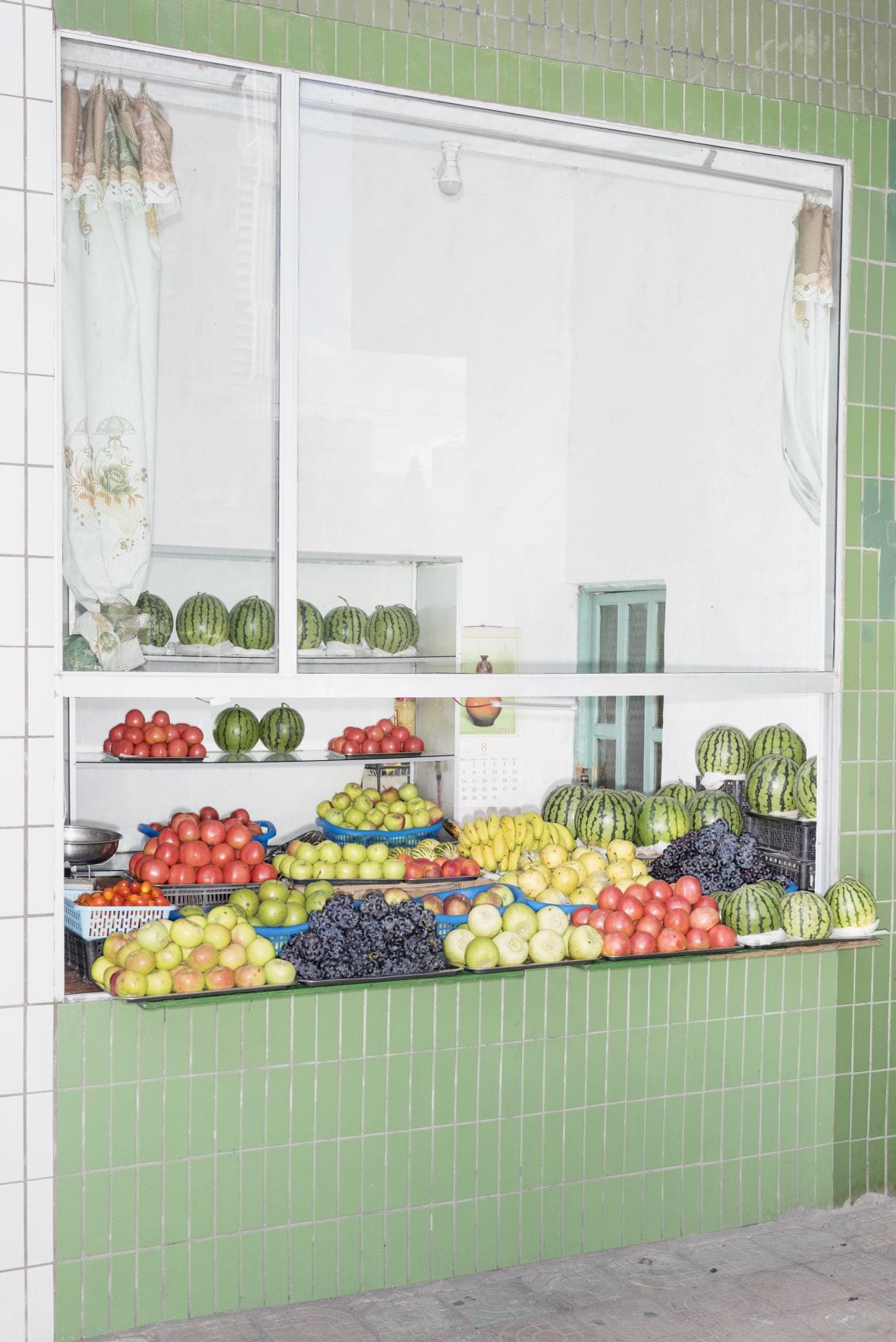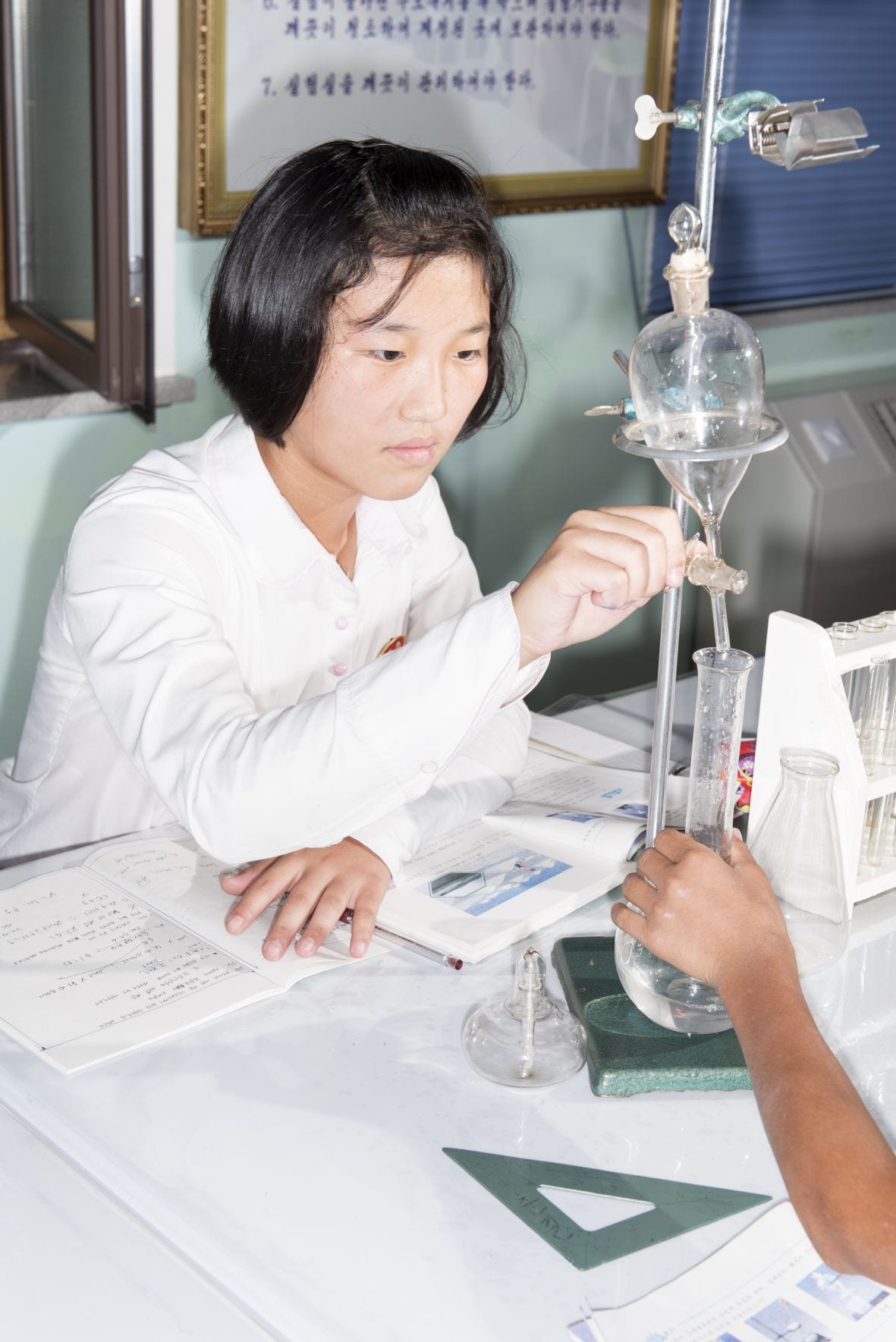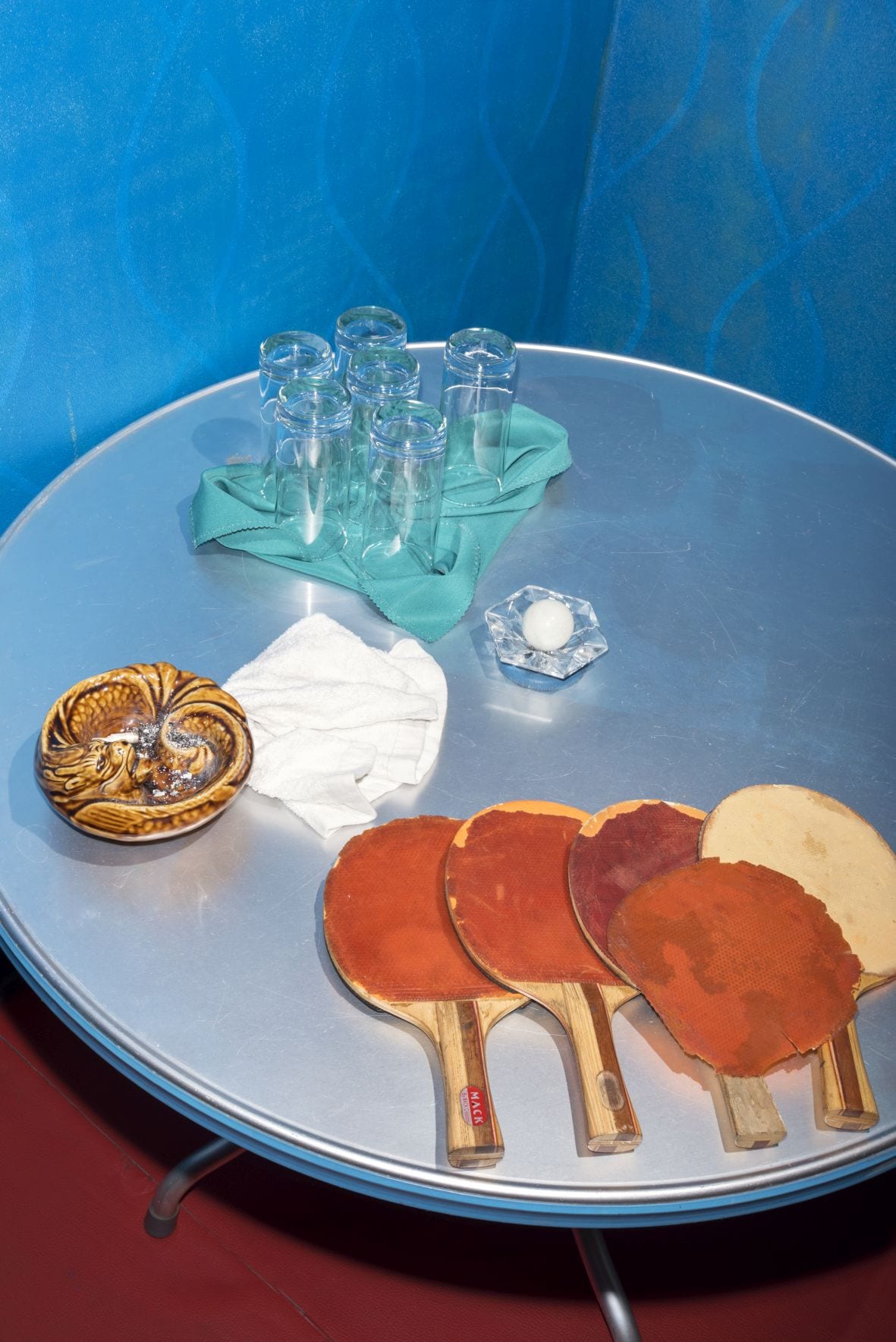Belgian photographer Max Pinckers has won the prestigious Leica Oskar Barnack Award with his series Red Ink. He receives €25,000, plus a Leica M camera and lens.
Red Ink was shot in North Korea while Pinckers was on assignment for The New Yorker magazine, accompanying journalist Evan Osnos on a four-day trip in August 2017 – the height of the propaganda war with the US. Pinckers’ access to the country was heavily stage-managed by the North Korean government, which carefully set up scenes for him to photograph. Knowing that this would be the case, Pinckers shot the images with a flash, creating a sense of the artificial that tipped the scenes presented to him into the surreal.
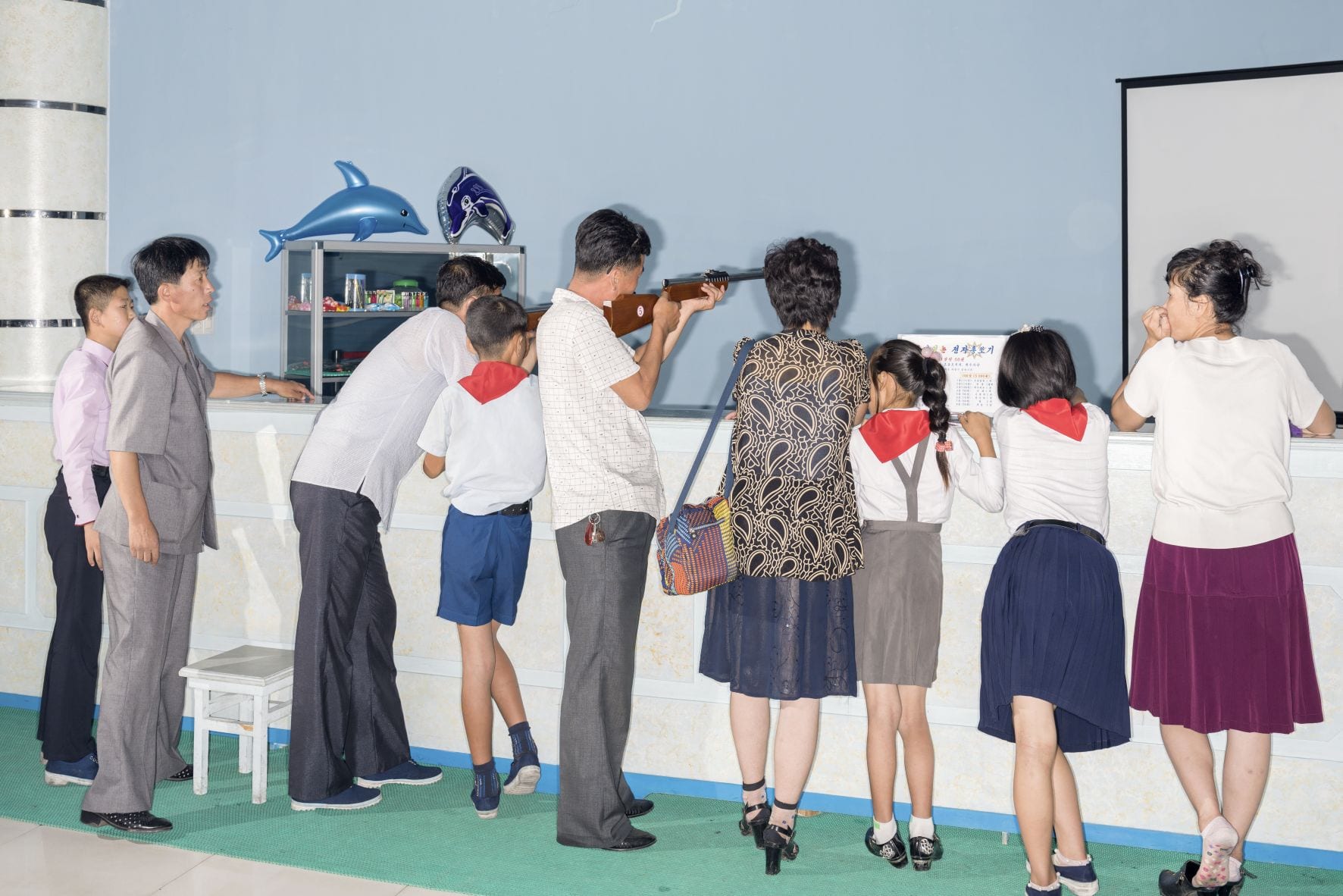
“There’s a subversiveness that creeps into this kind of constructed situation,” Pinckers commented to The New Yorker. “You can never really put a finger on it. You’re never really sure of anything.”
Born in Brussels in 1988, Pinckers has published four books, all of which play with the strategies of documentary photography – Margins of Excess (2018), Lotus (with Quinten De Bruyn, 2016), Will They Sing Like Raindrops or Leave Me Thirsty (2014), and The Fourth Wall (2012). BJP has previously featured all four publications, and Pinckers was a BJP One to Watch in 2013.
The Leica Oskar Barnack Award Newcomer 2018 went to Russian photographer Mary Gelman, for her series Svetlana. She receives a prize of €10,000, plus a Leica M camera and lens.
Svetlana is a facility for handicapped people run by the Campbell movement, which lies 150km was of St Petersburg. Svetlana aims to allow its residents to live and work free of prejudice and discrimination, and its leaders allowed Gelman to lists and take photographs for nearly two years.
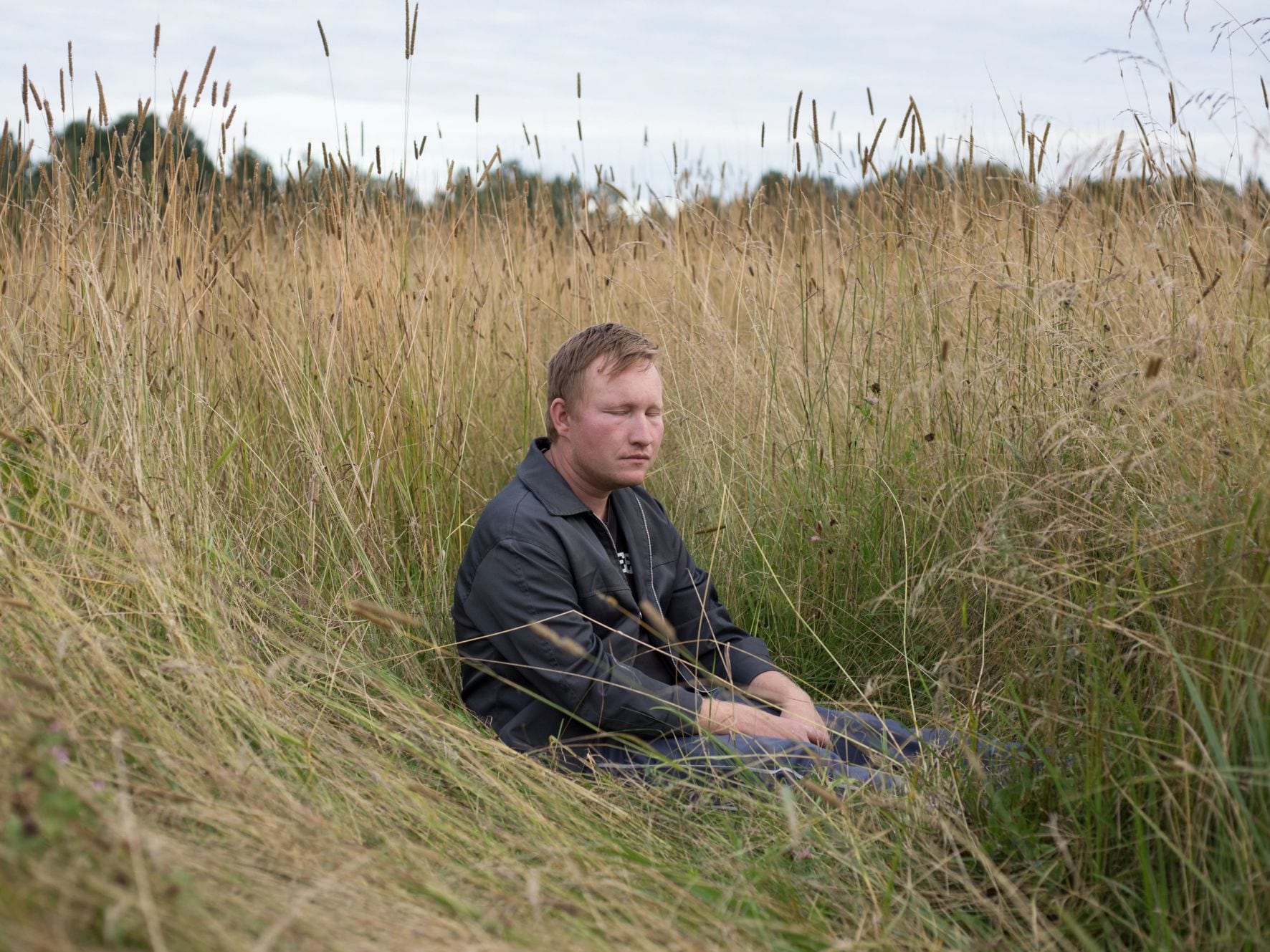
“At first they wanted to pose and goof around for me; when they saw the camera, they would always try to smile,” says Gelman. “But after a while, I became a frequent guest. Because I always had the camera with me wherever I went, they became used to it; it became something normal, and they started not to notice me. And this time was very important.”
Born in a small town in 1994, Gelman first studied Sociology, before turning to Gender Studies and Photography at the DocDocDoc School in St Petersburg. She now lives in St Petersburg, and her work has appeared in titles such as The Washington Post and the European Photography Magazine, as well as in exhibitions around the world.
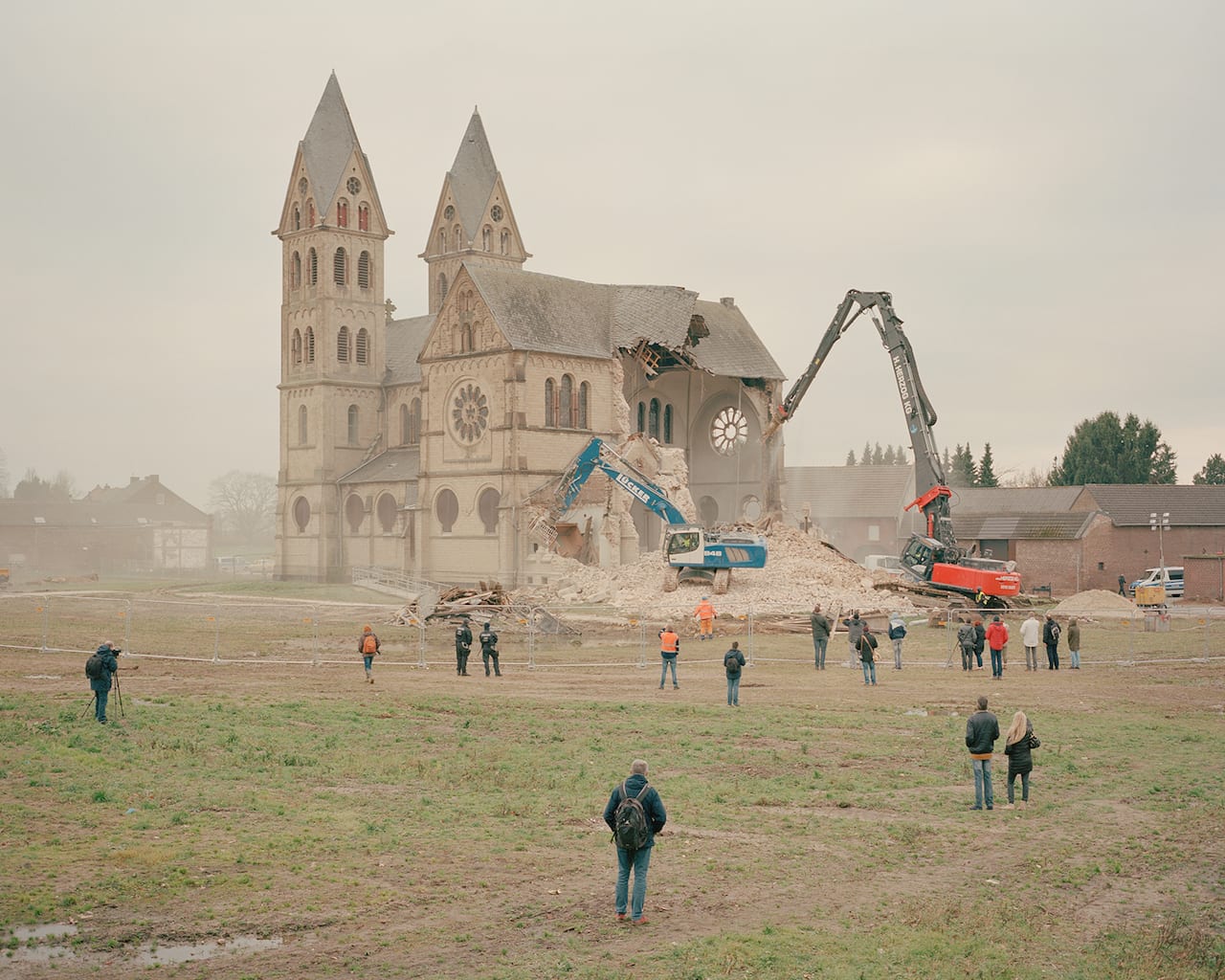
A total of 12 photographers were shortlisted for the Leica Oskar Barnack Award this year, in addition to Pinckers and Gelman – Ernesto Benavides, Peru; Vanja Bucan, Slovenia; Turi Calafato, Italy; Daniel Chatard, Germany; Stephen Dock, France; Samuel Gratacap, France; Stéphane Lavoué, France; Elsa Stubbé, Belgium; Christian Werner, Germany; and Kechun Zhang, China. Images from everyone on the shortlist can be seen here: www.1854.photography/2018/06/leica-oskar-barnack-shortlist-2018/
The Leica Oskar Barnack Award has been running since 1980, and previous winners include Sebastiao Salgado (1985 and 1992), Chris Steele-Perkins (1988), Eugene Richards (1993/94), Luc Delahaye (2000), Guy Tillim (2005), Mikhael Subotzky (2009), and JH Engström (2015). The jury this year included: Mark Lubell, executive director of the ICP; Christoph Wiesner, artistic director of Paris Photo; and Terje Abusdal, last year’s winner.
www.leica-oskar-barnack-award.com/en/
